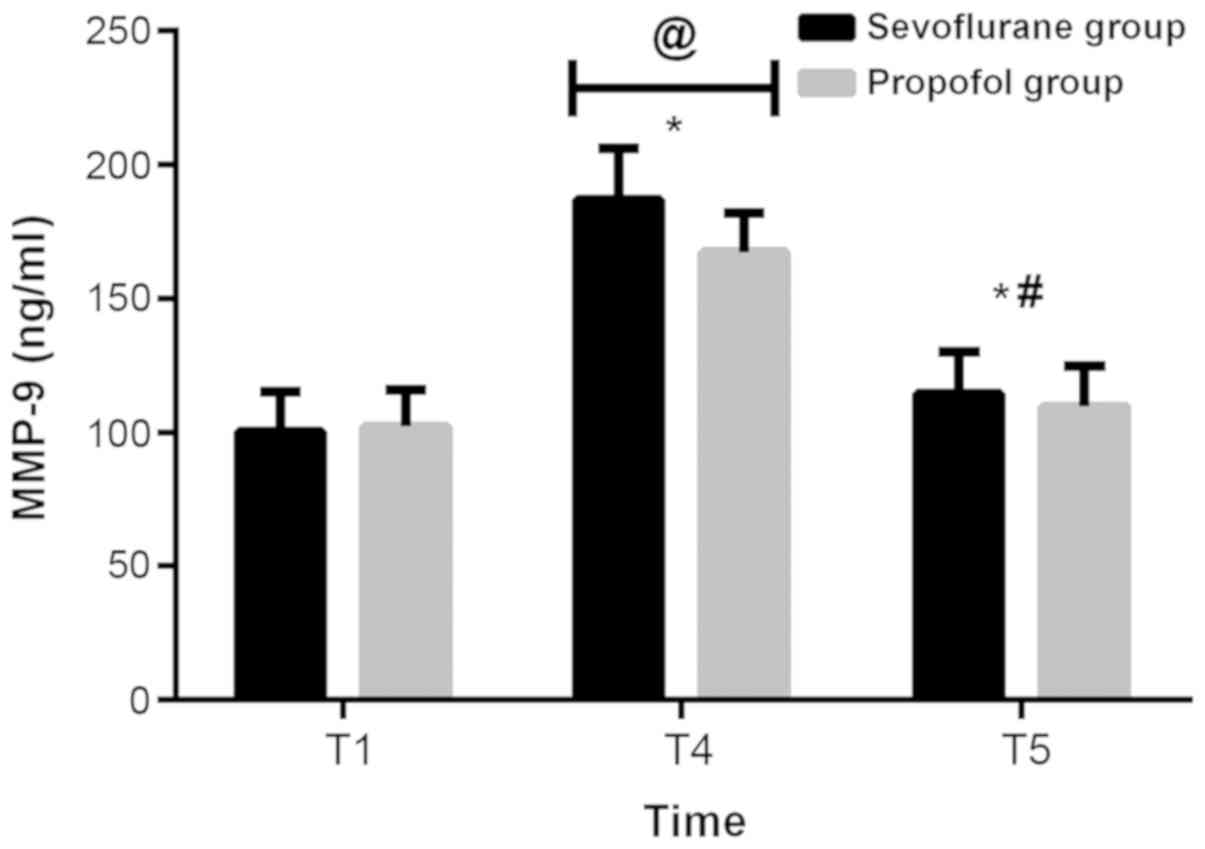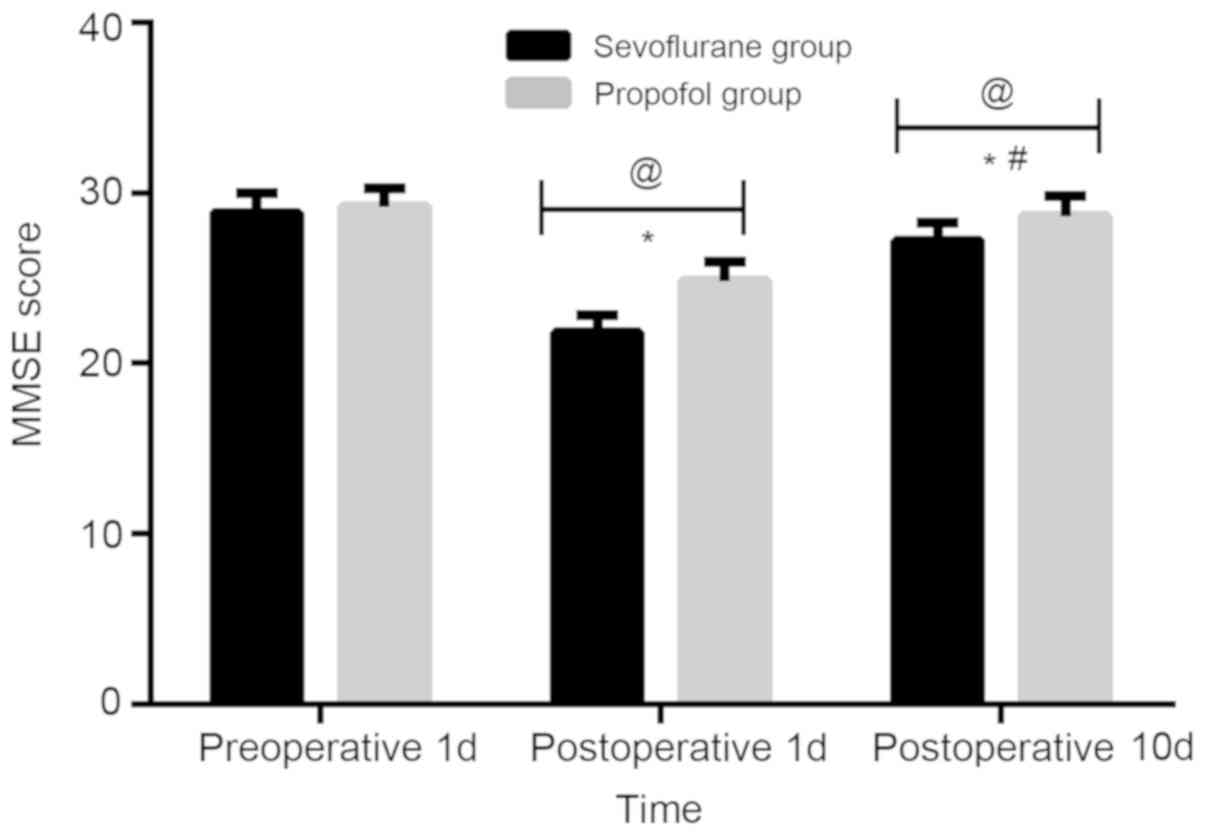|
1
|
Herbst RS, Heymach JV and Lippman SM: Lung
cancer. N Engl J Med. 359:1367–1380. 2008. View Article : Google Scholar : PubMed/NCBI
|
|
2
|
Pope CA III, Burnett RT, Thun MJ, Calle
EE, Krewski D, Ito K and Thurston GD: Lung cancer, cardiopulmonary
mortality, and long-term exposure to fine particulate air
pollution. JAMA. 287:1132–1141. 2002. View Article : Google Scholar : PubMed/NCBI
|
|
3
|
Shepherd FA, Rodrigues Pereira J, Ciuleanu
T, Tan EH, Hirsh V, Thongprasert S, Campos D, Maoleekoonpiroj S,
Smylie M, Martins R, et al; National Cancer Institute of Canada
Clinical Trials Group, . Erlotinib in previously treated
non-small-cell lung cancer. N Engl J Med. 353:123–132. 2005.
View Article : Google Scholar : PubMed/NCBI
|
|
4
|
Engelman JA, Zejnullahu K, Mitsudomi T,
Song Y, Hyland C, Park JO, Lindeman N, Gale CM, Zhao X, Christensen
J, et al: MET amplification leads to gefitinib resistance in lung
cancer by activating ERBB3 signaling. Science. 316:1039–1043. 2007.
View Article : Google Scholar : PubMed/NCBI
|
|
5
|
Bekker A, Korban A and Esochaghi S:
Long-term cognitive decline in the elderly is not attributable to
surgery/anesthesia. Int J Anesthesiol Res. 5:490–493. 2017.
|
|
6
|
Shi HJ, Xue XH, Wang YL, Zhang WS, Wang ZS
and Yu AL: Effects of different anesthesia methods on cognitive
dysfunction after hip replacement operation in elder patients. Int
J Clin Exp Med. 8:3883–3888. 2015.PubMed/NCBI
|
|
7
|
Tian HT, Duan XH, Yang YF, Wang Y, Bai QL
and Zhang X: Effects of propofol or sevoflurane anesthesia on the
perioperative inflammatory response, pulmonary function and
cognitive function in patients receiving lung cancer resection. Eur
Rev Med Pharmacol Sci. 21:5515–5522. 2017.PubMed/NCBI
|
|
8
|
Hsu AT, Barrett CD, DeBusk GM, Ellson CD,
Gautam S, Talmor DS, Gallagher DC and Yaffe MB: Kinetics and role
of plasma matrix metalloproteinase-9 expression in acute lung
injury and the acute respiratory distress syndrome. Shock.
44:128–136. 2015. View Article : Google Scholar : PubMed/NCBI
|
|
9
|
Shan JG, Xue S, Xu GX, Wang WJ, Lian F,
Liu S, Hu ZL and Huang RT: Effects of acupuncture-drug compound
anesthesia on perioperative inflammatory factors in patients
undergoing cardiac surgery. Zhongguo Zhenjiu. 30:585–588. 2010.(In
Chinese).
|
|
10
|
Luo YX, Huang B and Ying LI: Effects of
anesthetics on inflammatory response and lung function of patients
undergoing radical esophageal cancer surgery. Zhongguo Yiyuan
Ganranxue Zazhi. 4:877–879, (In Chinese).
|
|
11
|
Zhang L, Chen C, Wang L, Cheng G, Wu WW
and Li YH: Awakening from anesthesia using propofol or sevoflurane
withepidural block in radical surgery for senile gastric cancer.
Int J Clin Exp Med. 8:19412–19417. 2015.PubMed/NCBI
|
|
12
|
Zhao X, Jin YW, Li HB, Wang ZG, Feng H and
Feng C: Effects of maintaining intravenous infusion of remifentanil
or propofol on anesthesia and palinesthesia during anesthesia and
analepsia. Genet Mol Res. 13:2865–2872. 2014. View Article : Google Scholar : PubMed/NCBI
|
|
13
|
Jin Y, Zhao X, Li H, Wang Z and Wang D:
Effects of sevoflurane and propofol on the inflammatory response
and pulmonary function of perioperative patients with one-lung
ventilation. Exp Ther Med. 6:781–785. 2013. View Article : Google Scholar : PubMed/NCBI
|
|
14
|
Hu XL, Tang HH, Zhou ZG, Yin F and Liu WJ:
The effect of sevoflurane inhalation anesthesia only and propofol
total intravenous anesthesia on perioperative cytokine balance
inlung cancer patients. Xi Bao Yu Fen Zi Mian Yi Xue Za Zhi.
27:659–661. 2011.(In Chinese). PubMed/NCBI
|
|
15
|
Suemitsu R, Takeo S, Hamatake M, Morokuma
A, Suemori Y and Tanaka H: The results of surgery under general
anesthesia in patients with lung cancer. Surg Today. 41:60–66.
2011. View Article : Google Scholar : PubMed/NCBI
|
|
16
|
Qiu Q, Choi SW, Wong SS, Irwin MG and
Cheung CW: Effects of intra-operative maintenance of general
anaesthesia with propofol on postoperative pain outcomes - a
systematic review and meta-analysis. Anaesthesia. 71:1222–1233.
2016. View Article : Google Scholar : PubMed/NCBI
|
|
17
|
Sorour K, Vyas PA, Raval DS, Donovan LM
and Vyas AA: Successful treatment of severe asthma exacerbation
with sevoflurane inhalation in the intensive care unit. J Anesth
Crit Care. 3:000922015.
|
|
18
|
Stiles BM, Poon A, Giambrone GP,
Gaber-Baylis LK, Wu X, Lee PC, Port JL, Paul S, Bhat AU, Zabih R,
et al: Incidence and factors associated with hospital readmission
after pulmonary lobectomy. Ann Thorac Surg. 101:434–443. 2016.
View Article : Google Scholar : PubMed/NCBI
|
|
19
|
Tian HT, Duan XH, Yang YF, Wang Y, Bai QL
and Zhang X: Effects of propofol or sevoflurane anesthesia on the
perioperative inflammatory response, pulmonary function and
cognitive function in patients receiving lung cancer resection. Eur
Rev Med Pharmacol Sci. 21:5515–5522. 2017.PubMed/NCBI
|
|
20
|
Dai AL, Fan LH, Zhang FJ, Yang MJ, Yu J,
Wang JK, Fang T, Chen G, Yu LN and Yan M: Effects of sevoflurane
preconditioning and postconditioning on rat myocardial stunning in
ischemic reperfusion injury. J Zhejiang Univ Sci B. 11:267–274.
2010. View Article : Google Scholar : PubMed/NCBI
|
|
21
|
Rezaiguia-Delclaux S, Jayr C, Luo DF,
Saïdi NE, Meignan M and Duvaldestin P: Halothane and isoflurane
decrease alveolar epithelial fluid clearance in rats.
Anesthesiology. 88:751–760. 1998. View Article : Google Scholar : PubMed/NCBI
|
|
22
|
Molliex S, Crestani B, Dureuil B, Bastin
J, Rolland C, Aubier M and Desmonts JM: Effects of halothane on
surfactant biosynthesis by rat alveolar type II cells in primary
culture. Anesthesiology. 81:668–676. 1994. View Article : Google Scholar : PubMed/NCBI
|
|
23
|
Zarogoulidis P, Darwiche K, Tsakiridis K,
Teschler H, Yarmus L, Zarogoulidis K and Freitag L: Learning from
the cardiologists and developing eluting stents targeting the mTOR
pathway for pulmonary application; a future concept for tracheal
stenosis. J Mol Genet Med. 7:652013. View Article : Google Scholar : PubMed/NCBI
|
|
24
|
Zhai HR, Yang XN, Nie Q, Liao RQ, Dong S,
Li W, Jiang BY, Yang JJ, Zhou Q, Tu HY, et al: Different dissecting
orders of the pulmonary bronchus and vessels during right upper
lobectomy are associated with surgical feasibility and
postoperative recovery for lung cancer patients. Chin J Cancer.
36:532017. View Article : Google Scholar : PubMed/NCBI
|
|
25
|
Jin Y, Zhao X, Li H, Wang Z and Wang D:
Effects of sevoflurane and propofol on the inflammatory response
and pulmonary function of perioperative patients with one-lung
ventilation. Exp Ther Med. 6:781–785. 2013. View Article : Google Scholar : PubMed/NCBI
|
|
26
|
Liang H, Gu MN, Yang CX, Wang HB, Wen XJ
and Zhou QL: Sevoflurane inhibits proliferation, induces apoptosis,
and blocks cell cycle progression of lung carcinoma cells. Asian
Pac J Cancer Prev. 12:3415–3420. 2011.PubMed/NCBI
|

















